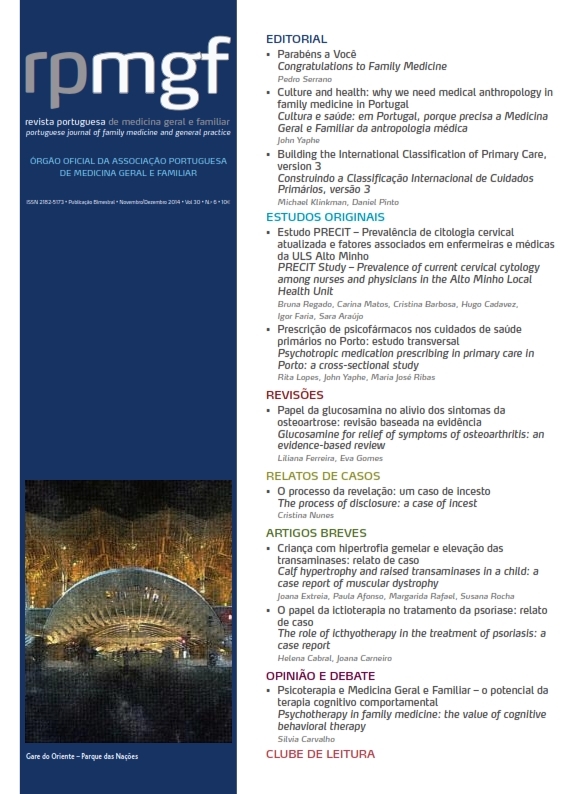The process of disclosure: a case of incest
DOI:
https://doi.org/10.32385/rpmgf.v30i6.11403Keywords:
Incest, ViolenceAbstract
Incest is a public health problem with low visibility. It is under diagnosed by health services. It is often unreported. Conviction rates are low because disclosure by the victim is essential and is rare and difficult. The family physician is in a privileged position to approach this issue. This case report describes a 39 year old woman who was raised by a foster family from 6 months of age until the age of 7. She maintained contact with her biological family and was the victim of incest by her older brother until she was 17. This case describes the lengthy process of disclosure and the associated legal and ethical issues. The patient demonstrated borderline personality disorder, post-traumatic stress disorder, and family and social dysfunction. Therapy in these cases is prolonged, multidisciplinary and comprehensive, including individual and family therapy. The family physician may adopt an empathic attitude, allowing the patient to recognize that their maladaptative emotions are a survival response to incest in the past.Downloads
Downloads
Published
Issue
Section
License
The authors will assign to the RPMGF the sole right to publish and distribute the content of the manuscript specified in this declaration via physical, electronic, broadcasting or any other medium that may come into existence. They also grant the RPMGF the right to use and exploit this manuscript, in particular by assigning, selling or licensing its content. This permission is permanent and takes effect from the moment the manuscript is submitted, has the maximum duration allowed by applicable Portuguese or international law and is of worldwide scope. The authors further declare that this assignment is made free of charge. If the RPMGF informs the authors that it is not going to publish their manuscript, the exclusive assignment of rights ceases forthwith.
The authors authorise the RPMGF (or any entity it may appoint) to act on their behalf when it believes that copyright may have been infringed.





